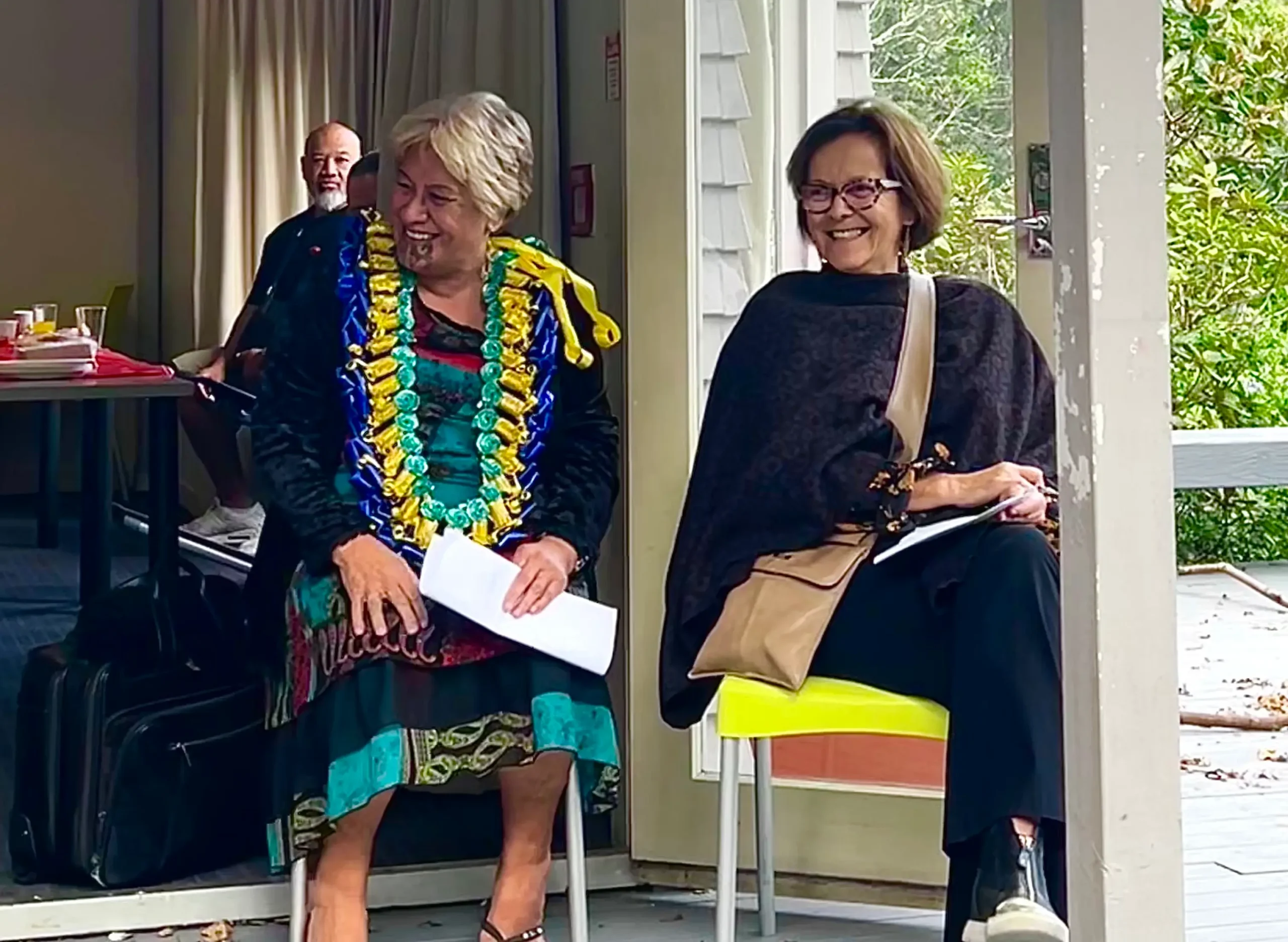
Last month we celebrated our Kahurangi, Vivi Lee, for 40 years of loyal service to Te Pā tangata and whānau. Vivi joined what was then the Prisoners’ Aid and Rehabilitation Society in 1983 and remains a staunch advocate of those people needing our help, to this day.
Vivi has kindly given her permission for us to share some of her story.
Whakataukī: Hāmua Pā whakaruru, Hāpōtiki Tū whakarae.
Tōku pepeha i te taha o ōku mātua tūpuna.
Ko Taranaki tōku Maunga
Ko Aotea tōku Waka
Ko Tangahoe tōku Awa
Ko Ngāti Ruanui tōku Iwi
Ko Hāmua, ko Hāpotiki tōku Hapū
Ko Taiporohenui tōku Marae
Ko Whareroa tōku Whare Tūpuna
Ko Kautu ki te Rangi tōku Whare ā Rongo
Ko Te Hāwera te rohe i reira
Nō reira
Ko Heretaniwha tōku ingoa tūturu
Ko Vivi Lee tōku ingoa anō.
In 1983, Vivi caught the attention of Prisoners’ Aid and Rehabilitation Society board member, Con Young. Con saw great potential in Vivi and recommended her to the then-Director of the organisation, Bill Young, for a role as a field officer. Having expected to always be a factory worker, Vivi took the role for a year – never dreaming that she would still be at Te Pā more than half her lifetime later. She remembers how her first take-home pay was little more than $142 a week and she still has her original contract.
Those early days were full-on but she absolutely loved the mahi. A typical working day meant being at the Otahuhu District Court prior to tangata, whanau and associates arriving, to tautoko those who were appearing that day and assisting them with the court process, then attending Mount Eden Prison to work with tangata there before heading over to the office in Khyber Pass Road to figure out how to fit in all the work generated. Then she’d be back the next day to do it all again.
Living with integrity has always been hugely important to Vivi. In her words, “Whatever way I walked was on behalf of my paternal grandmother and great-grandmother. Everything I do, I do in their mana.” She has a phenomenal recall for names, and those who backed her are painted indelibly on her memory. In order for Vivi to work inside the prisons, clearance was required from the then three superintendents of the facilities, and it was many years later before Vivi learnt of the significance of the unanimous backing she’d been given by all of the prison directors. She is deeply grateful to them and many others for their faith and belief in her, especially Bill Young, who became a mentor, and who she fondly remembers as being the epitome of manaakitanga. Bill trusted her implicitly, and encouraged and supported her every step of the way. They remained close friends until he passed, and her loyalty to those on that Executive Committee is one of the reasons she’s remained with Te Pā for so many years. While humble in her achievements, she will allow herself to recognise that Bill would have been very proud.
With husband, Tom, Vivi had four tamarki and they have gifted her 15 mokopuna and one mokotuarua, with another on the way. Tom had a great deal of respect for Te Pā and always backed Vivi in the work she did for the organisation, which often saw her travelling. Losing Tom in tragic circumstances in 2015, then a daughter and grandson within five weeks of each other a couple of years later were particularly difficult, and Vivi is grateful to Te Pā for being a constant in her life through tough times such as these.
Prisons are by their very nature, uneasy environments, and Vivi has had to fight for her right to be there. She’s tough with the tangata because she’s needed to be, but she believes that to earn respect, you have to show respect. She is proudly Kīngitanga and her knowledge of Māoritanga and use of traditional whanaungatanga (for example, creating connection and rapport through the smaller details like remembering tangata names and the names of their kids) have helped her build a strong reputation, too.
But what is the main thing that has kept Vivi motivated to come back to her job day after day for 40 years? Her answer is uncomplicated: She stayed where her heart lay, and that is with he tangata. Her greatest job satisfaction comes from knowing she has done everything she can for a tangata, and to see him happy and moving forward in life.
As for the future, when she retires Vivi will head back down home to Taranaki where she’ll dedicate herself to growing her knowledge of te reo and supporting her marae. She hopes to be remembered as someone who did their job well; most importantly by the tangata she worked with.
Vivi is humble about her achievements and has no idea of just how many tangata and whānau she’s helped over the years, instead giving all credit to those who supported her. Kāore te kūmera e kōrero mō tōna ake reka. The kūmera never speaks of its own sweetness. Such is the mana and humility of this wahine toa.